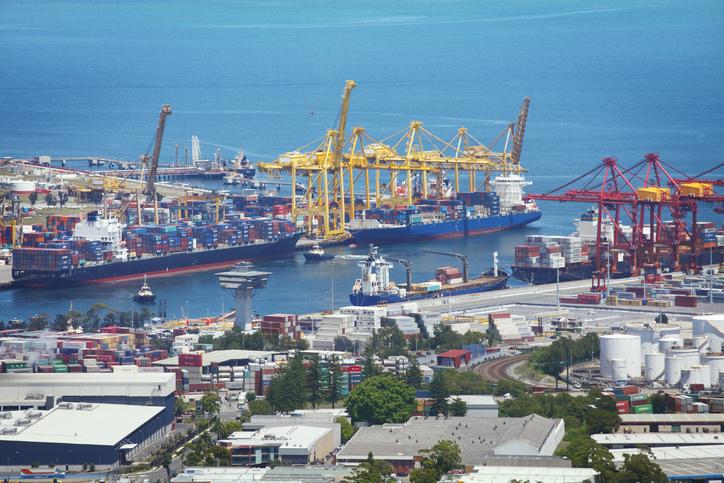Agenda for change: building prosperity and security
Posted By Gill Savage on February 23, 2022 @ 12:00

On 2 February, ASPI released Agenda for change 2022: shaping a different future for our nation [1] to promote public debate and understanding on issues of strategic importance to Australia. The key message in Agenda for change 2022 is that we need to embrace uncertainty, engage with complexity and break down the silos. Our economic prosperity, national resilience and security depend upon it.
In the lead-up to every federal election, ASPI looks at the big challenges facing Australia and what’s needed to address them. Agenda for change 2022 includes a chapter by national security expert Michael Shoebridge titled ‘From building defensive resilience to creating prosperity and security: a successful Australia in a divided and dangerous world’. This chapter seeks to connect the ‘strategic, technological and economic interests’ of the big ideas presented in other chapters.
Shoebridge positions his chapter in the ‘middleware’, between the need for cross-sectoral nation-building [2] highlighted by me and John Coyne, and the call by David Uren to deepen trade cooperation with our free-trade agreement (FTA) partners.
We were wrong, Shoebridge says, to place deep faith in our FTA with China. It ‘means little in the face of what Beijing sees as an imperative need to demonstrate what happens when nations act in their own interest in ways that displease it’. In contrast, he says our FTAs with Japan, the US, South Korea and Indonesia are aligned with our strategic interests and democratic values. As will be our new FTAs with the UK and India. We should not neglect the emerging set of Indo-Pacific-focused EU members, including Germany, the Netherlands, Norway and France, and the ‘tech and military concept partner’, Israel.
The challenge is that our ‘brittle supply chains’ continue to shatter under the pressure of Covid-19 and ‘ruthless intervention of state power into markets’. We need to make the shift from trade with everyone to trade with priority partners. Shoebridge highlights the key element: trust.
Encouraging Australian businesses to ‘diversify trade in any way possible’ is the wrong approach. We need to ‘prioritise two-way trade and industry integration with this set of jurisdictions that we can trust, and that are security partners, not just economic partners’. Shoebridge notes that ‘France makes our list and, over time, the French are likely to realise Australia continues to make their list’.
Trust underpins the opportunity to take advantage of the preferential trade arrangements we have with partners, but we also need to ‘mirror current Foreign Investment Review Board rules that scrutinise investment from sources with known higher national security risk with rules that actively encourage investments from sources where Australia has common national security interests’. Shoebridge says that ‘the “core group” of the Quad plus AUKUS is a great place to a start’.
Shoebridge suggests that Australia has three paths available to it: we can be a customer, a victim or a contributor–partner. Australia rejected the victim pathway when we partnered with others to create our 5G network. On critical minerals, rare earths and batteries, he says we’re choosing the path of partner–contributor, which is reinforced by the key technologies focus of AUKUS.
However, there continues to be much to do when it comes to supply-chain vulnerability. ‘Playing to our advantages will make strategic and economic sense not just to us but to our partners and help make our cooperation real, not just a set of political policy notions.’
This chapter warns of lapsing into the ‘default mindset’ of ‘unitary policymaking and action, whether at the federal or state and territory level’. Shoebridge notes, ‘[T]he dynamic of increasing federal power we have experienced since 1901 has been reversed by a rediscovery of state and territory constitutional and institutional power (as an example, they don’t just have responsibility for their health systems; they run them). This is far from a problem, though; it’s actually a strength.’
Shoebridge says that net zero and climate change prove the point. ‘South Australia, Victoria and NSW are filling the policy and investment space not taken by the federal level.’ He advocates improving national cohesion on the policy responses to Chinese power and highlights that national cabinet is a key tool in enhancing our contributor–partner relationship with trusted jurisdictions.
But how? We need to focus on our core group of trusted partners, and targeted funding is key. Shoebridge says we need to leverage the ‘$20 billion in newly available funding in the government’s planned defence spend from now to 2034 that flows from the cancellation of the Attack-class submarine program’. That funding, Shoebridge says, should be ‘redirected to the replacement technology agenda set out so crisply in AUKUS—around AI, cyber, undersea tech and quantum tech’.
The good news, concludes Shoebridge, is that Australia has the ‘beginnings of this new path’ towards being a trusted contributor–partner.
Article printed from The Strategist: https://aspistrategist.ru
URL to article: /agenda-for-change-building-prosperity-and-security/
URLs in this post:
[1] Agenda for change 2022: shaping a different future for our nation: https://www.aspistrategist.ru/report/agenda-change-2022-shaping-different-future-our-nation
[2] need for cross-sectoral nation-building: /agenda-for-change-2022-building-resilience-while-celebrating-diversity/
Click here to print.